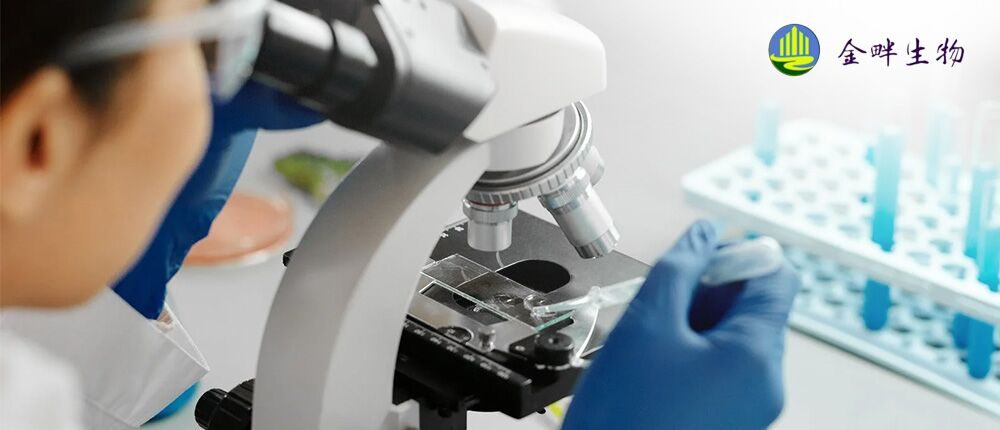、
| CYT-281 | 重组人成纤维细胞生长因子21(rHuFGF 21 , His) | 2μg/10μg/1mg | Prospec |
Synonyms:
Fibroblast growth factor 21, FGF-21.
Introduction:
The FGFs are a family of more than 20 small (~17–26 kDa) secreted peptides. The initial characterization of these proteins focused on their ability to stimulate fibroblast proliferation. This mitogenic activity was mediated through FGF receptors (FGFRs) 1, 2, or 3. A fourth closely related tyrosine kinase receptor (FGFR4) was able to bind the FGFs but did not lead to a mitogenic response.
FGFs modulate cellular activity via at least 5 distinct subfamilies of high-affinity FGF receptors (FGFRs): FGFR-1, -2, -3, and -4, all with intrinsic tyrosine kinase activity and, except for FGFR-4, multiple splice isoforms, and FGFR-5, which lacks an intracellular kinase domain. There is growing evidence that FGFRs can be important for regulation of glucose and lipid homeostasis. The overexpression of a dominant negative form of FGFR-1 in β cells leads to diabetes in mice, which thus implies that proper FGF signaling is required for normal β cell function and glycemia maintenance. FGFR-2 appears to be a key molecule during pancreatic development. Moreover, FGFR-4 has been implicated in cholesterol metabolism and bile acid synthesis.FGF-19, has been shown to cause resistance to diet-induced obesity and insulin desensitization and to improve insulin, glucose, and lipid profiles in diabetic rodents. Since these effects, at least in part, are mediated through the observed changes in metabolic rates, FGF-19 can be considered as a regulator of energy expenditure.
FGF-21 is preferentially expressed in liver, but an exact knowledge of FGF-21 bioactivity and its mode of action have been lacking to date. FGF-21 is a potent activator of glucose uptake on adipocytes, protects animals from diet-induced obesity when overexpressed in transgenic mice, and lowers blood glucose and triglyceride levels when therapeutically administered to diabetic rodents.
Description:
Fibroblast Growth Factor -21 Human Recombinant produced in E.Coli is a single, non-glycosylated, polypeptide chain containing 195 amino acids and having a molecular mass of 21 kDa. The amino acid sequence of the recombinant human FGF21 is 100% homologous to the amino acid sequence of the human FGF21 without signal sequence and contains 14 a.a. His tag at N-terminal.
The FGF-21 is purified by proprietary chromatographic techniques.
Source:
Escherichia Coli.
Physical Appearance:
Sterile Filtered white lyophilized powder.
Formulation:
Filtered (0.4 µm) and lyophilized from 0.5 mg/ml in 20mM TRIS, 20mM NaCl, pH 7.5.
Solubility:
It is recommended to reconstitute the lyophilized Fibroblast Growth Factor-21 Human Recombinant sterile 18MΩ-cm H2O not less than 100µg/ml, which can then be further diluted to other aqueous solutions.
Stability:
Lyophilized FGF-21 Human Recombinant although stable at room temperature for 3 weeks, should be stored desiccated below -18°C. Upon reconstitution Fibroblast Growth Factor 21 should be stored at 4°C between 2-7 days and for future use below -18°C. For long term storage it is recommended to add a carrier protein (0.1% HSA or BSA).
Please prevent freeze-thaw cycles.
Purity:
Greater than 95.0% as determined by:
(a) Analysis by RP-HPLC.
(b) Analysis by SDS-PAGE.
Amino acid sequence:
MRGSHHHHHH GMASHPIPDS SPLLQFGGQV RQRYLYTDDA TEAHLEIR EDGTVGGAAD QSPESLLQLK ALKPGVIQIL GVKTSRFLCQ RPDGALYGSL HFDPEACSFR ELLLEDGYNV YQSEAHGLPL HLPGNKSPHR DPAPRGPARF LPLPGLPPAP PEPPGILAPQ PPDVGSSDPL SMVGPSQGRS PSYAS.
Usage:
ProSpec's products are furnished for LABORATORY RESEARCH USE ONLY. They may not be used as drugs,agricultural or pesticidal products, food additives or household chemicals.
提供美国光谱医学透析袋,wako生化试剂,amresco生化试剂,sigma生化试剂,优质的分子生物学试剂和试剂盒、培养基本和培养耗材、细胞因子和细胞分离液、抗体和elisa试剂盒及常用生物试剂等,,欢迎登录 或者,,洽谈选购!
、
